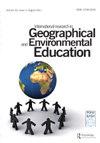地理与环境教育之评估与评价
IF 3.1
Q2 EDUCATION & EDUCATIONAL RESEARCH
International Research in Geographical and Environmental Education
Pub Date : 2022-07-03
DOI:10.1080/10382046.2022.2105499
引用次数: 4
摘要
找出哪些有效,哪些无效,对于提高人类表现至关重要。如果没有评估和评估,我们就无法选择停止、改变、维持或加强哪种绩效干预(Kaufman、Keller和Watkins,1996)。我们一直需要衡量、分析和做出决定,但我们需要询问我们是在评估还是在评估。评估和评价都是教育的重要方面,是学习和教学的核心。然而,评估和评价这两个术语经常互换使用。这是错误的。评估涉及衡量有效性。它是对一个人或一个过程的价值做出判断和/或衡量的过程。另一方面,评估涉及收集与学习活动或科目有关的信息。评估包括在过程中增加一个价值方面。该值与我们在决定成功或失败时对信息的重视程度有关。在地理和环境教育中,我们经常看到与学生学习评估以及正式和非正式学习领域的课程评估有关的研究。IRGEE的一篇社论(Reid,2018)呼吁进一步投资于研究和评估,以改进环境教育实践。在此之前,IRGEE发表了几项关于地理或环境教育方案评估的研究。后来,IRGEE发表了一篇关于地理教育评估的系统综述(Lane&Bourke,2019)。该研究得出的结论是,需要更加明确以下方面:本文章由计算机程序翻译,如有差异,请以英文原文为准。
Assessment and evaluation in geographical and environmental education
Finding out what has worked and what has not worked is essential for the advancement of human performance. Without assessment and evaluation, we cannot choose which performance intervention to discontinue, alter, maintain, or enhance (Kaufman, Keller and Watkins, 1996). We have a constant need to measure, analyse, and make decisions, yet we need to ask if we are assessing or evaluating. Both assessment and evaluation are important aspects of education—they are central to learning and teaching. However, the terms assessment and evaluation are often used interchangeably. This is erroneous. Assessment is concerned with measuring effectiveness. It is the process of making judgements and or measurements of the worth of a person or a process. Evaluation, on the other hand, involves gathering information related to learning activities or subjects. Evaluation involves adding a value aspect to the process. The value relates to the importance we assign to the information in determining success or failure. In geographical and environmental education, we often see research relating to the assessment of student learning as well as programme evaluation in the domains of formal and informal learning. An IRGEE editorial (Reid, 2018) called for further investment in research and evaluation to improve practice in environmental education. Before this, IRGEE published several studies on the evaluation of geographical or environmental education programmes. Later, IRGEE published a systematic review (Lane & Bourke, 2019) of assessment in geography education. The study concluded that greater clarity is needed regarding:
求助全文
通过发布文献求助,成功后即可免费获取论文全文。
去求助
来源期刊

International Research in Geographical and Environmental Education
EDUCATION & EDUCATIONAL RESEARCH-
CiteScore
5.20
自引率
33.30%
发文量
11
期刊介绍:
International Research in Geographical & Environmental Education publishes quality research studies within the context of geographical and environmental education. The journal endeavours to promote international interest and dissemination of research in the field, provides a forum for critique, and demonstrates the relevance of research studies to good professional practice.
 求助内容:
求助内容: 应助结果提醒方式:
应助结果提醒方式:


